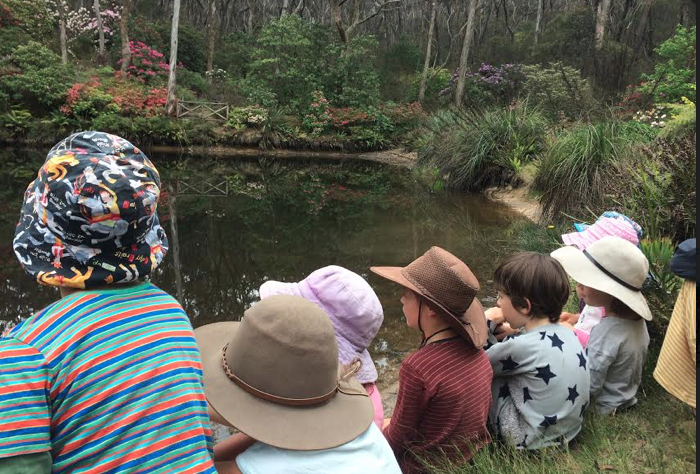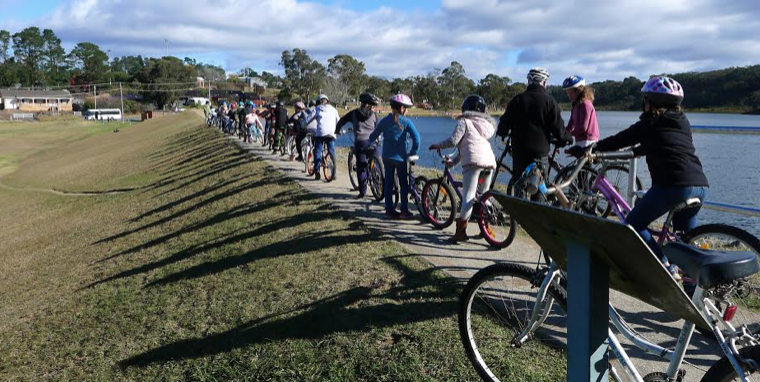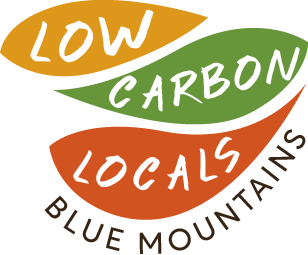Steiner philosophy was established at the tumultuous end of first world war by Rudolf Steiner, to create a fairer, safer world. Opened in 2000, Kindlehill School on Lake St Wentworth Falls, aims to take these philosophies for life and education into the new millennium. Made from straw bales and mudbrick the school’s buildings have the lowest possible carbon footprint and environmental impact. Trees that needed to be removed to make room for the school, and for the widening of the highway were used in the construction. Left over building products were donated by local tradespeople who were impressed with the project.

The school’s emblem is the local endangered Giant Drangonfly, and along with Silvermere Guesthouse (also Gold LCL members), the school sees itself as responsible for protecting the Wentworth lake catchment and ecosystems for future generations.
With climate change now accepted as the most pressing issue of our time, the school is re-focusing these efforts on lowering their carbon usage; integrating low carbon practices throughout the education and fabric of school life; and highlighting the vast ramifications of climate change for the more vulnerable communities around the world. Joining Low Carbon Living Blue Mountains has enabled the school to measure their carbon footprint, and improve their sustainability practices and principles.

As well as standard recycling, students and staff have been educated on soft plastic recycling. Collection bins are located in each area of the school ready for recycling via super-markets. All food waste is composted on site, and used for food production. Reducing biodegradable waste to landfill reduces the carbon footprint of the school’s waste to landfill stream significantly. Water tanks are used for the garden.
Kindlehill’s 2016 ‘Low Carbon Living’ energy, waste and water carbon audit showed that one of the 5kW Power One Aurora inverters was not performing to warranty, and only producing energy 20% of the time. After exploring options for repairing the existing system, local solar installer, Gary from ‘Sunkissed Solar’ recommended they be replaced. This will go ahead on 26-28 September. Old panels will be tested and sold second hand via Gumtree.
Due to a significant winter energy spike, oil heaters have been replaced with gas heaters. Whilst gas is also a fossil fuel, gas heaters, efficient reverse cycle air conditioners, and heat pumps produce one-third of the carbon emissions compared to standard electric heaters. The kindy stoves have been replaced with gas, and the others are not in frequent use.
This winter the school has tested leaving the heaters on low, and only switching them off during the school holidays to avoid energy spikes and over-heating, and hopefully to reduce consumption. With 15-20% of heat lost through gaps around doors, the school plans to improve door seals to help buffer to the external temperatures.
The recently installed floodlight is LED, and the bulk of fluorescent tubes are LED. Remaining non-LED lighting in the main school building will be replaced during the next years planned renovation. Since joining Low Carbon Living Blue Mountains, Kindlehill school has switched to Powershop energy provider, who only invest in renewables and offset carbon usage. Powershop also assist with monitoring and provide feedback about usage.
As Powershop does not yet supply gas in NSW, Kindlehill’s gas supply is still from AGL. Interestingly AGL are ‘most improved’, but still listed 5th on Australia’s independent annual Green Electricity Guide. Even power companies do not agree with the Federal Government’ extension of the fossil fuel industry and their refusal to support industry transition to renewables.
